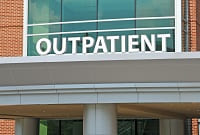
August 19, 2021
A new analysis of the biannual Consumer Survey of Health Care Access finds that gay, lesbian, and bisexual individuals experience elevated mental health challenges compared with heterosexual individuals, with this disparity particularly evident among women. Survey participants provided information about their mental health, need for treatment, and service indicators like satisfaction with care when received. Overall, bisexual women reported the worst mental health and most barriers to care compared to heterosexual men. Notably, bisexual men also reported worse mental health than heterosexual men, but did not face more barriers to care, suggesting sex may uniquely interact with sexuality to affect mental health and the experience of treatment services. To learn more, see the study in Psychiatric Services.

August 16, 2021
New research from Hong Kong further supports the safety of maintaining an antipsychotic treatment regimen for pregnant women with psychotic disorders. In a study of more than 300,000 mother-child pairs, researchers found that prenatal exposure to antipsychotics did not significantly increase the risk for ADHD, autism spectrum disorder (ASD), low birth weight, or pre-term births at follow-up. However, researchers did find an increased risk for ADHD or ASD in children of women with a psychiatric disorder, regardless of prenatal use of antipsychotics, emphasizing the need for careful monitoring of mother and child by a trusted mental health provider throughout the perinatal period. To learn more, see the study in JAMA.

July 12, 2021
This month, the Department of Defense (DoD) released the 2019 edition of the annual DoD Suicide Event Report. The report provides statistics on suicide and suicide attempts among military populations as well as trends over time, risk factors, and utilization of treatment services. In 2019, the suicide mortality rate among active-component service members was 25.9 per 100,000 – nearly twice the general U.S population rate of 13.9 per 100,000. Suicide mortality rates have been steadily increasing among nearly all service populations since 2011, and this in-depth report provides valuable context to support better strategies to address this critical issue. To learn more, see the report here.

July 8, 2021
As digital health technology rises in popularity, mobile health tools designed for caregivers may be valuable in reducing gaps in service and support. In a survey of 43 caregivers of young adults with early psychosis, participants were asked about potential features of a mobile health (mHealth) app designed to support them in their caregiving role. Most respondents supported features that tracked their loved ones’ treatment needs, such as changes in symptoms, but were less interested in features focused on their own care and wellbeing. Overall, this research demonstrates the value of developing mHealth interventions for caregivers focused on the practical responsibilities of their role. To learn more, see the study in Psychiatric Services.

July 8, 2021
Black Americans face multiple socioeconomic and cultural barriers to mental health care, often leaving them without needed support. A recent study explored the potential of a church-affiliated mental health clinic to help address these challenges. Researchers interviewed 15 clients of the HOPE Center in Harlem, New York, which offers free, evidence-based psychotherapy provided by licensed clinicians. Overall, participants reported that they were more comfortable seeking mental health treatment when services were affiliated with a trusted institution, integrated cultural understanding and faith, and free-of-charge. The findings suggest the promise of alternative interventions to address stigma and structural barriers to care within Black communities. To learn more, see the study in Psychiatric Services.

June 15, 2021
Between 2014 and 2018, 43% of U.S. mental health facilities offered no mental health crisis services, according to a recent analysis of the annual National Mental Health Services Survey. Less than half (48%) of facilities reported providing active-response crisis services, while an even smaller proportion (34%) reported offering walk-in emergency psychiatric services. Services varied significantly by state, with the lowest availability in the Northeast and in coastal or border states such as California, Texas, Florida, and North Carolina. These results suggest significant policy efforts are necessary to ensure equitable access to outpatient crisis care. To learn more, see the study in Psychiatric Services.

June 11, 2021
In 2020, the proportion of mental health-related emergency department (ED) visits increased by 31% among adolescents aged 12-17 compared to 2019, according to a CDC analysis. Trends in ED visits for suspected suicide attempts among adolescents are especially concerning – in February–March 2021, suicide-related ED visits among girls aged 12-17 had increased 51% compared to the same period in 2019. Among boys, suicide-related ED visits increased by 4% during this period. This data illustrates the critical need to address adolescent mental health, as well as the unique experience of mental health concerns among girls and young women. To learn more, see the CDC’s Morbidity and Mortality Weekly Report.

June 9, 2021
Measurement-based matching, or proactively assigning patients to specific therapists based on their respective symptoms and strengths, can effectively improve outcomes according to new research. From 2017 to 2019, adult outpatients in 6 Ohio mental health clinics were randomized to either standard case assignment or measurement-based matching – receiving treatment from a therapist with historical success in their relevant treatment domains. Those intentionally matched with therapists saw significantly greater improvements on a variety of symptom measures compared to those assigned to therapists in the standard manner. To learn more, see the study in JAMA.

May 11, 2021
New mothers were twice as likely to experience postpartum depressive symptoms during the first “lockdown” of COVID-19 compared to pre-COVID, according to a new study from University College London. Researchers surveyed 162 London mothers with children under 6 months old between May and June of 2020. Compared to an estimated 23% before the pandemic, 48% met criteria for postpartum depression. The researchers also collected information about each mother’s social networks during the study period. Although virtual and remote communication was not as beneficial as in-person support, mothers with larger social networks reported less severe depressive symptoms. To learn more, see the study in Frontiers in Psychology.

May 7, 2021
In a new survey of people utilizing community behavioral health services, 80% report that their experiences with telehealth were as good or better than in-person services before prior to the COVID-19 pandemic. Researchers surveyed 1,482 individuals receiving telehealth services from a New York City behavioral health agency in May 2020. Of those who indicated interest in continuing telehealth after the pandemic, 83% would prefer a mix of telehealth and in-person visits. Telehealth continues to show promise as a supplemental tool to increase and sustain access to mental health care. To learn more, see the study in Psychiatric Services.
NAMI HelpLine is available M-F, 10 a.m. – 10 p.m. ET. Call 800-950-6264,
text “helpline” to 62640, or chat online. In a crisis, call or text 988 (24/7).